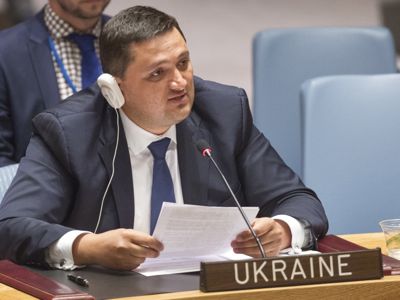
During the Security Council debate on the humanitarian situation in Ukraine, August 5, Ukrainian Ambassador Oleksandr Pavlichenko, taking advantage of the fact that the eyes of the world were riveted on a comparable crisis in Gaza, said that "there is no humanitarian crisis in Ukraine, as continually portrayed by our Russian colleagues." [1]. Comparable to that of the press Atlantist position.
Yet according to John Ging, Director of the Coordination and Response Division at the U.N. Office for the Coordination of Humanitarian Affairs (OCHA), of the 3.9 million people living in areas affected by the fighting, 117,910 people escaping from the insurgents have relocated to another part of Ukraine, while 740,000 others fleeing from the Ukrainian army have crossed into Russia, bringing the total of displaced persons to 857,910.
It is because a quarter of the population has left that the number of victims is not higher. However, it has already reached at least 1,367 dead (mostly civilians) and 4,087 injured.
1,600 homes were destroyed. 70% of health workers fled the area. In Donetsk and Lugansk, with a total of 1.5 million inhabitants, the population has access to water only a few hours a day.
Since April 7, and the declaration of independence of the People’s Republic of Donetsk, the Kiev government pounded the main cities of the region without regard for the civilian population. Despite the incomparable inferiority of their military means, the separatists still stand. Refusing to commit war crimes, many Ukrainian soldiers have defected and sought political asylum in Russia.
[1] “Meeting of the UN Security Council on Humanitarian Situation in Ukraine”, Voltaire Network, 5 August 2014.












Stay In Touch
Follow us on social networks
Subscribe to weekly newsletter